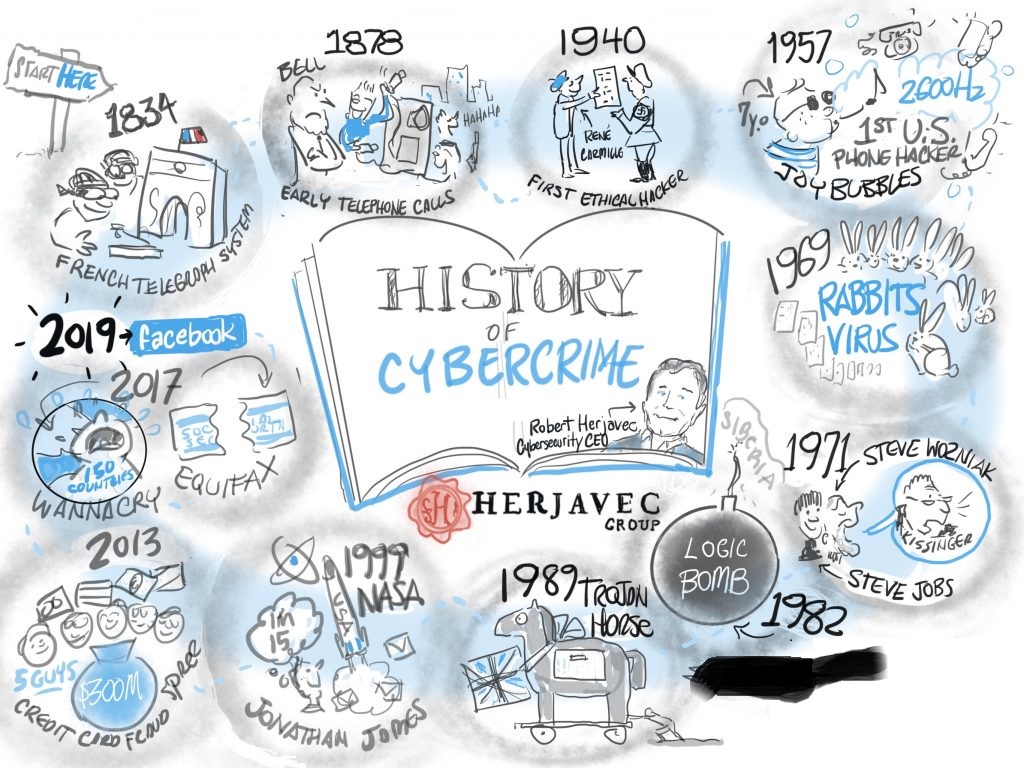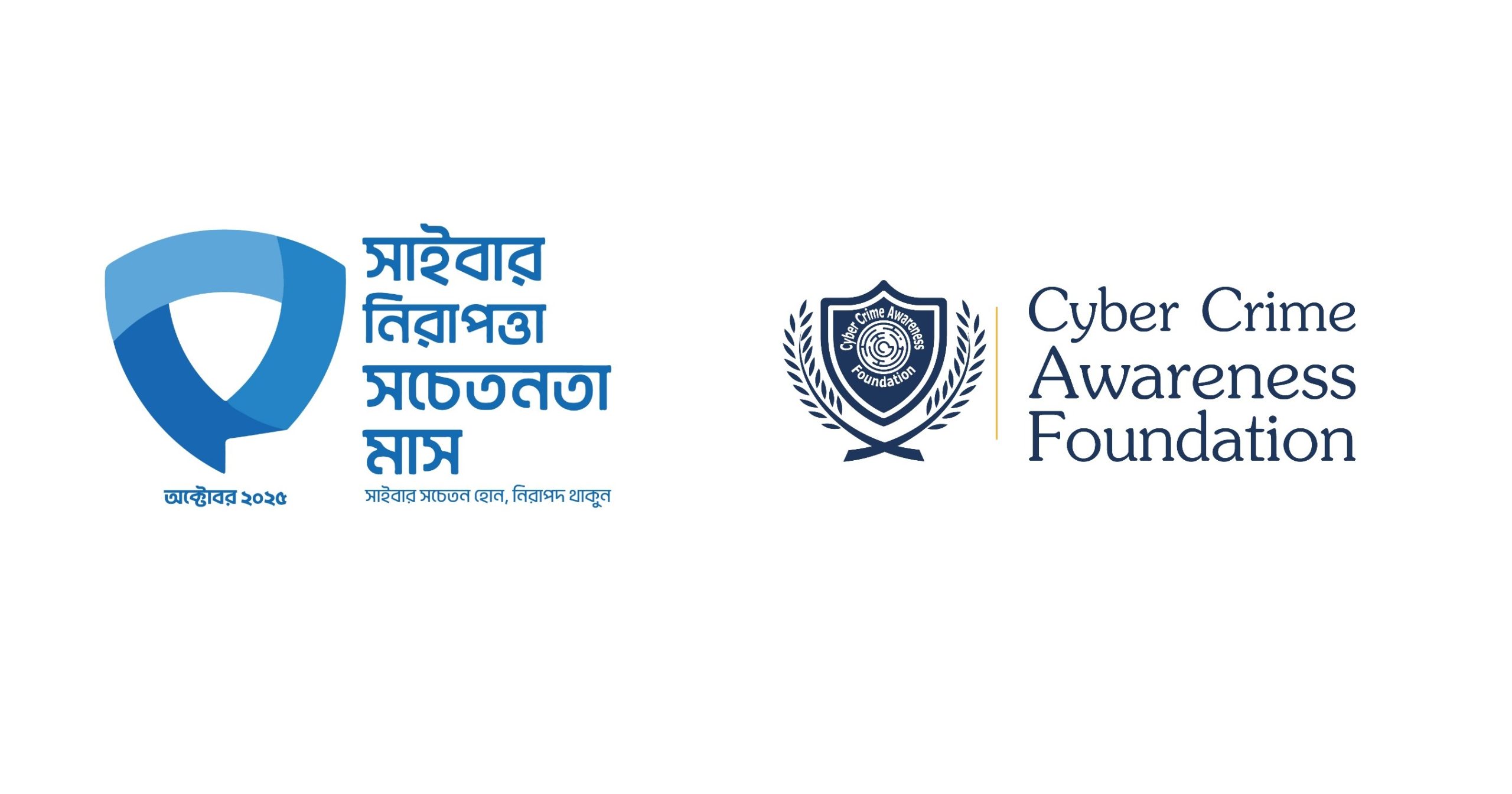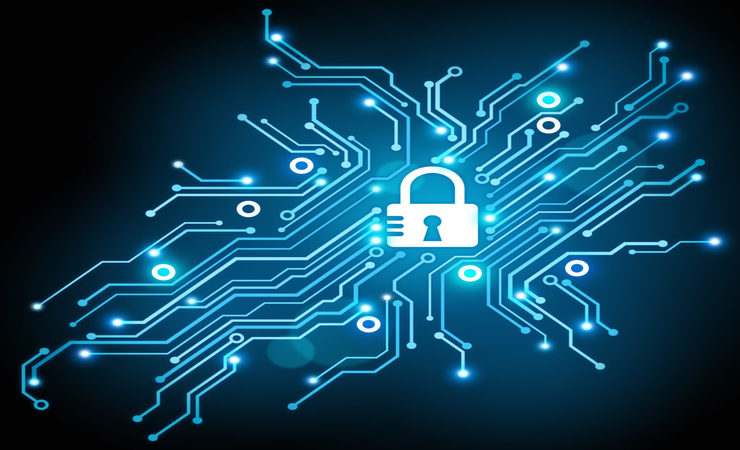CYBER CRIMES IN BANGLADESH
Chapter 1
INTRODUCTION
1.1 Introduction
New communication system and digital technology have made dramatic changes in the way we live. In the last decade the Internet has achieved considerable expansion. In today’s world, international borders don’t bind this kind of crime, which exploits the technological situation of the global market. In Bangladesh the rate of internet user is increasing rapidly. Cyber crimes are gradually increasing in the country but Bangladesh has no mechanism yet to combat this thing. Cyber crime encompasses any criminal act dealing with computers and networks. It also includes traditional crimes conducted through the Internet. A growing number of states have introduced or are in the process of introducing new legislation on cyber crime offenses but in Bangladesh we still do not found any positive attempt of the government to enacting cyber law in our country.
Though Bangladesh is a poor country but now a day because of mobile phone internet service Internet is now becoming available to almost all the districts of our country. People started to know what is internet and what cyber world is. At present we have so many cyber cafes in our country. The young generations are badly addicted to internet and computer. They love to spend lots of time on computer. This is very crucial period for our country. The Financial express on 10 January 2008 publish one report stating that with an inactive cyber law and a severe lack of the expertise necessary to detect cyber crime Bangladesh has become a safe haven for anyone committing a computer crime.<href=”#_ftn3″ name=”_ftnref3″ title=””>[3] According to Net craft, a UK company that is doing research and analysis on internet applications – Bangladesh has been identified as one of the top ten hosts for phasing sites for hosting fake websites or sending fake emails to obtain confidential information.<href=”#_ftn4″ name=”_ftnref4″ title=””>[4] The internet has become a very important part of our lives. Bangladesh has a growing information technology sector. With the rise of modern technology Bangladesh like every other nation trying to go on with the increasing speed, that is why there is a need for specific laws to control cyber crimes. Also there is an urgent need to develop a cyber crime legislation that will protect cyber security in Bangladesh.
The concept of cyber law is very much new in Bangladesh. No Bangladeshi writer yet writes any book on cyber law. In Bangladeshi market there are very few numbers of books available on cyber law
Chapter 2
INTERNET AND CYBER CRIM
2.1 Introducing Internet
The Internet is an interactive medium based on a decentralized network of computers. One portion of the Internet is known as the World Wide Web.<href=”#_ftn5″ name=”_ftnref5″ title=””>[5] The Internet may also be used to engage in other activities such as sending and receiving emails, trading files, exchanging instant messages, chatting online, streaming audio and video, and making voice calls.
2.2 Definition of cyber crime
Cyber crime can broadly be defined as a criminal activity involving an information technology infrastructure, including illegal access (unauthorized access), illegal interception<href=”#_ftn6″ name=”_ftnref6″ title=””>[6] (by technical means of non-public transmissions of computer data to, from or within a computer system), data interference (unauthorized damaging, deletion, deterioration, alteration or suppression of computer data), systems interference (interfering with the functioning of a computer system by inputting, transmitting, damaging, deleting, deteriorating, altering or suppressing computer data), misuse of devices, forgery (theft), and electronic fraud.This includes anything from downloading illegal music files to stealing millions of dollars from online bank accounts. Cyber crime also includes non-monetary offenses, such as creating and distributing viruses on other computers or posting confidential business information on the Internet.<href=”#_ftn7″ name=”_ftnref7″ title=””>[7]
2.3 Different types of cyber crime
Cyber crimes can be basically divided into 3 major categories:
1. Cyber crimes against persons.<href=”#_ftn8″ name=”_ftnref8″ title=””>[8]
2. Cyber crimes against property.
3. Cyber crimes against government.
Cyber crimes committed against persons include various crimes like transmission of Child-pornography, harassment of any one with the use of a computer such as e-mail. The second category of Cyber-crimes is crimes against all forms of property. These crimes include computer vandalism (destruction of others’ property), transmission of harmful program. The third category of Cyber-crimes relate to Cyber crimes against Government. Cyber terrorism is one distinct kind of crime in this category.
Chapter 3
CYBER CRIME IN BANGLADESH
3.1 Present situation of Bangladesh
Development of Science and ICT depends on the expansion of telecommunication sector. This sector is still under developed due to lack of deregulation and open competition. The impact of cyber crime is not alarming Bangladesh because financial transactions have not yet been fully facilitated in online.<href=”#_ftn9″ name=”_ftnref9″ title=””>[9] As soon as financial transactions are allowed online computer crimes will increase at an unprecedented rate unless the Government acquires the tools and infrastructure to prevent, detect and prosecute them.<href=”#_ftn10″ name=”_ftnref10″ title=””>[10] But our government still not aware of the fact . Internet services provided through the local area network are vulnerable to similar attacks and intrusions by hackers more often when the security level is inadequate.Now a day in Bangladesh some people send malicious mail to different foreign diplomatic Mission and other VIPs which sometimes cause serious problem for the police and also for the government.
<href=”#_ftn11″ name=”_ftnref11″ title=””>[11] Some people use internet for transmitting false and malicious information. Some of them use internet for women and child trafficking. Pornography is another dangerous business weapon of the cyber criminals. But In spite of this the Government of Bangladesh is not alert.
3.2 Cyber crime in Bangladesh
Life is about a mix of good and evil. So is the Internet. For all the good it does us, Cyber space has its dark sides too. <href=”#_ftn12″ name=”_ftnref12″ title=””>[12] Unlike conventional communities though, there are no police men patrolling the information superhighway, leaving it open to everything from Trojan horses and viruses to cyber stalking, trademark counterfeiting and cyber terrorism. Few months earlier one group of people hack the web site of Rapid – action – battalion in Bangladesh. When this incident was published in the media all most all the institution of the government became scared. <href=”#_ftn13″ name=”_ftnref13″ title=””>[13] No body wants to believe it. After that RAB arrested some people and they are now in jail . One of the main RAB website hackers, Shahee Mirza, said that nobody should use his acquired computer skills in such criminal activities like hacking of important Government or private websites. After listening his statement lot of expert who are dealing with cyber crimes in Bangladesh become scared . <href=”#_ftn14″ name=”_ftnref14″ title=””>[14] Although the 2006 Information and Communications Technology (ICT) Act covers many of the legal aspects to prosecute cyber crime, but it has not been effectively implemented since its ratification. According to the expert opinion the main reason for the law’s Ineffectiveness, is the lack of legal support and social and public awareness about Computer crimes. Cyber crime analysts point out that although pornography is not considered illegal across the world, but in Bangladesh it is one of the predominant computer crimes. There is already evidence of the existence of illegally hosted pornographic websites with local content. In Bangladesh, Nowadays youths are increasingly using cyber cafes as their dating places. According to newspaper reports, various types of antisocial activities take place in these cafes in the name of net browsing.<href=”#_ftn15″ name=”_ftnref15″ title=””>[15] For Internet browsing, there are separate cabins for pairs where their intimate moments are videoed secretly. These pictures are later made available on the Internet. According to section 57 of the ICT Act 2006, a person convicted for uploading vulgar and obscene contents on website is punishable to a 10-year imprisonment and a fine of Tk one crore. <href=”#_ftn16″ name=”_ftnref16″ title=””>[16] But no one care it because in our country we still do not have any effective cyber tribunal to deal with this problem. That is why it is very easy for the cyber criminals in Bangladesh to get rid of punishment.
3.3 Use of Internet in bad Intention
There are two sides of a coin. Similarly internet also has advantages and disadvantages. Internet can be used as a mass destructive weapon. By using internet terrorist can destroy one country. Few weeks ago Bangladesh government imposed restriction on opening you- tube video site because it contains an audio recording of a March 1 encounter between angry army officers and the prime minister. The recording was made on March 1 during an emotional meeting at the Dhaka cantonment. Hundreds of officers were present, distraught after paramilitary soldiers brutally killed more than 50 members of the army, including many of the leaders of the Bangladesh Rifles border force. Bangladesh government says in front of media that you-tube has been blocked in the interest of national security. <href=”#_ftn17″ name=”_ftnref17″ title=””>[17]
3.4 Bangladesh is not safe from cyber crime
The government statistics for cyber crime are not remarkable, but district judges have been empowered to try cases in reference to the penal code and code of criminal procedure.<href=”#_ftn18″ name=”_ftnref18″ title=””>[18] The limited number of cyber crimes apprehended is confined to email threats. According to a government study conducted by the Bangladesh Computer Council, only 0.3 per cent of the total population own computers and 0.7 per cent have access to the internet.<href=”#_ftn19″ name=”_ftnref19″ title=””>[19] In September 2007, most internet service providers (ISPs) in Bangladesh were affected by the Denial of Service (DoS) attack. A large volume of data packets was transmitted from an American data centre and caused server failure, slowing the performance of almost all ISPs. The attack was initially attempted on one ISP, Global Access Limited (GAL). Such attack causes serious damage. But our government remains silent after the attack and said in front of media that we have nothing to do.
3.5 Bangladesh is in Danger
Cyber terrorists are very expert. It is not possible for the normal police to arrest them.
Cyber warfare is a complex aspect of the modern war, but it is not a new feature. <href=”#_ftn20″ name=”_ftnref20″ title=””>[20]It has been called by various names in the past – intelligence and electronic warfare. Some of the cyber warfare notions are absurd, such as bringing a society to its knees through an exotic electronic disruption to banking systems or air traffic control networks. Extremist groups train their workers for the future cyber warfare. Extremist organizations also use the Internet to target their audiences without depending on overt mechanisms such as radio, TV, or the press. The police force of our country is not still developed. They are not expert like American federal bureau of investigation. That’s why it is very easy for the cyber criminals to commit crime in Bangladesh . In our country we still do not have any cyber law also. Now a day in Bangladesh lot of people use Face book on internet. Face book is a social utility that connects people. <href=”#_ftn21″ name=”_ftnref21″ title=””>[21] Students are blind fan of face book. Students use face book almost all day long. They upload their pictures , they send their message through this site to their friends . But the problem is some people use face book for business purpose . They post illegal things and advertise it in face book. They invite students to join so many fake clubs. Some group invite students community to come and join different restricted night club of Dhaka city. Student community becomes influenced by this type of advertisement. So many crimes have been occurred already through face book<href=”#_ftn22″ name=”_ftnref22″ title=””>[22]Almost all the university strictly restricted their students to open face book in the computer lab during the class time because this site seriously hampered the education of the students.
3.6 Bangladesh under a serious cyber threat
Few years back in 2004 one boy named Partho was accused for sending a threatening email to former prime minister of Bangladesh Sheikh Hasina.<href=”#_ftn23″ name=”_ftnref23″ title=””>[23]After that he was arrested by the police. The investigation team takes help from the IT expert of cid team after that they found that one boy using cyber cafe computer send an email to sheikh hasina and that boy was Shaibal saha partho . In this case the police also take help from the foreign cyber law expert. But the Problem arise after the arrest because there is no law available in our country to deal with this matter that is why it is become very difficult for the police to go for the further proceedings and as a result of this the police take different way and that is torture which is not supportable. During that time lot of people advise our government to enact cyber law in our country but still today it is not implemented and the government still remain silent about the matter . <href=”#_ftn24″ name=”_ftnref24″ title=””>[24]
3.7 Bangladesh computer society website hacked by libyan hacker
The hacking took place after a few days of a 3 day-long “Regional Seminar on Cyber Crime in Dhaka” from 5-8 November. <href=”#_ftn25″ name=”_ftnref25″ title=””>[25] Cyber Crime experts from Australian High-tech Crime Center (AHTCC) attended the seminar and discussed about various offences done by the Internet. But the incident of hacking the website of an important organization like Bangladesh Computer Society happened after a few days of the seminar. The organization has been working for long days in developing Information & Communication Technology in Bangladesh. It has been working in the areas of promoting and creating awareness among people in using computer, acting as a liaison among the computer professionals in home and abroad. Cyber attack at the early stage of ICT development in Bangladesh is frustrating news. Concerned people with ICT expect the authority will take stern action against repetition of this type of cyber crime. Regional & international cooperation is strongly needed to combat these cyber-terrorists.
Chapter 4
CYBER LAW IN BANGLADESH
4.1 Bangladesh plans for strict cyber crime laws
Bangladesh is planning stringent measures to fight cyber crime amid the rapid expansion of the information and communications technology and telecommunications networks in the South Asian country. Bangladesh’s ICT industry has been expanding exponentially and is making its presence strongly felt both in the public and private sectors. More than five million personal computers are now in use in the country with three million internet users, by industry estimates. “We have taken steps to facilitate fair and secured use of information technology as the country lacks a complete law to deal with cyber crime,” says MM Neazuddin, Joint Secretary to the Science and ICT Ministry. Neazuddin said that the government, which has pledged a “Digital Bangladesh” by the year 2021, had approved in principle to amend previous legislation calling for jail terms and heavy financial penalties to tackle new forms of crime. The proposed law has suggested provisions for a maximum 10 years in jail and taka 10 million (US$150, 000) in fines for hacking into computer networks and putting false and libellous information or indecent material online. For the speedy and effective prosecution of the offences, the government will consult with the Supreme Court to set up one or more Cyber Tribunals.
4.2 The Information and Technology Act, 2006
The Penal code of Bangladesh contains very few provision regarding cyber squatting. But in case of cyber crime like Hacking, Internet time thefts, Email bombing- there is nothing contained in our penal code. So it can be said that it is not possible for our government to control cyber crime by using some provision of the penal code . To controlled cyber crime it is necessary to enact special law which only deals with cyber related matters .
The Government of Bangladesh passed Information Technology Act on 2006. This is the most recent statute enacted by the government of Bangladesh with a view to consolidate Computer related matters and also prosecute computer and computer network related Offence.<href=”#_ftn26″ name=”_ftnref26″ title=””>[26]This statute contains several provisions regarding damage to computer and computer system.
Cybercrime dictates that prohibits attacks or unauthorized access to computers and computer systems. According to Section 66 of the ICT Act provides Punishment for tampering with computer source documents. Section 66 says whoever intentionally destroys or alters or intentionally or knowingly causes any other person to conceal, destroy or alter any computer source code used for a computer, computer program, computer system or computer network, shall be punishable with imprisonment of either description for a term which may extend to three years, or with fine which may extend to Taka two lakhs, or with both.<href=”#_ftn27″ name=”_ftnref27″ title=””>[27]
Section 67 Hacking with computer system. Whoever, with the intent to cause or knowing that he is likely to cause wrongful loss or damages to the public or any other person, does any act and thereby destroys, deletes or alters any information residing in a computer resource or diminishes its value or utility or affects it injuriously by any means, commits the offence of “hacking”.
Section 68 of the ICT Act provides punishments for the hackers. Section 68 says that whoever commit hacking shall be punished with imprisonment for a term which may extend to three years or with fine which may extend to taka two laks or with both. But the problem of this act is this act deals with so many things . The act is made to cover all the information technology related matters. But it is not possible to cover all the things by implementing just only one act . In order to control cyber crime we need to have one specific cyber law in our country .
Chapter 5
COMPARATIVE STUDY WITH SOME COUNTRIES
5.1 An International perspective on cyber crime
Cyber crime is becoming ever more serious. Findings from the 2002 Computer Crime and Security Survey show an upward trend that demonstrates a need for a timely review of existing approaches to fighting this new phenomenon in the information age. In this paper, we provide an overview of cybercrime and present an international perspective on fighting cybercrime. We review current status of fighting cybercrime in different countries, which rely on legal, organizational, and technological approaches, and recommend four directions for governments, lawmakers, intelligence and law enforcement agencies, and researchers to combat cybercrime.<href=”#_ftn28″ name=”_ftnref28″ title=””>[28]
5.2 Within Country Strategy
The United States, to protect the interests of internet businesses, the U.S. Congress has created new laws to regulate activities on the internet. With the first digital signature law in the world, the U.S. has established a number of regulations on cybercrime, such as the “National Infrastructure Protection Act of 1996”, the “Cyberspace Electronic Security Act of 1999” and the “Patriot Act of 2001”. In addition a number of agencies have set up in the U.S. to fight against cybercrime, including the FBI, National Infrastructure Protection Center, National White Collar Center, Computer Hacking and Intellectual Property Unit of the Doj, and so on. The FBI has set up special technical units and developed Carnivore.<href=”#_ftn29″ name=”_ftnref29″ title=””>[29]
England two cyber crimes related Acts have been passed by the British parliament: the Data Protection Act of 1984 and the Computer Misuse Act of 1990. The former one deals with actual procurement and use of personal data while the latter defines the laws, procedures and penalties surrounding unauthorized entry into computers. The British government has applied technologies of filtering and rating to protect manors from inappropriate material on the Web.<href=”#_ftn30″ name=”_ftnref30″ title=””>[30]
Canada in 2001, the Canadian parliament passed the Criminal Law Amendment Act that has tow sections. The first section defines unlawful entry into a computer system and interception of transmissions. The second section criminalizes the actual destruction, alteration, or interruption of data. <href=”#_ftn31″ name=”_ftnref31″ title=””>[31]
The Kenya Communications (Amendment) Act was passed by the Kenyan Parliament and signed into law by the President on January 2. The Act includes legislation on cybercrime in Sections 83 W-Z and 84 A- F on: unauthorized access to computer data, access with intent to commit offences, unauthorized access to and interception of computer service, unauthorized modification of computer material, damaging or denying access to computer system, unauthorized disclosure of passwords, unlawful possession of devices and data, electronic fraud, tampering with computer source documents, and publishing of obscene information in electronic form.
In Norway a Bill on a new Criminal Law (2008-2009) has in 202 introduced a provision on identity theft, using the term Identity Infringements that reads as follows:“With a fine or imprisonment not exceeding 2 years shall whoever be punished, that without authority possesses of a means of identity of another, or acts with the identity of another or with an identity that easily may be confused with the identity of another person, with the intent of a) procuring an economic benefit for oneself or for another person, or b) causing a loss of property or inconvenience to another person.”(Unofficial translation). The Norwegian Parliament (Stortinget) has on May 28 adopted the New Penal Code, including several provisions on cybercrime.
5.3 Cyber law in United Kingdom
The Police and Justice Act 2006 Chapter 48 declares the amendments of the Computer Misuse Act 1990, Part 5 sections 35 to 38. The new amendments came into force on October 1, 2008.
5.4 Cyber law in Republic of India
The Indian Government has in 2003 announced plans on a comprehensive law for cybercrimes.66.Hacking with computer system. (1) Whoever with the intent to cause or knowing that he is likely to cause wrongful loss or damage to the public or any person destroys or deletes or alters any information residing in a computer resource or dimishes its value or utility or affects it injuriously by any means, commits hack.
(2) Whoever commits hacking shall be punished with imprisonment up to three years, or with fine which may extend up to two lac rupees, or with both.<href=”#_ftn32″ name=”_ftnref32″ title=””>[32]
5.5 Cyber law in People’s Republic of China
In China many cybercrime issues are covered in laws and regulations that refers to Internet related crimes. The two most important organizations responsible for internal and external security are the Public Security Bureau (PSB), responsible for the internal security, and the Ministry State Security (MSS), which handles external security. The responsibilities of the Public Security Bureau (PSB) are formally codified in: “Computer Information Network and Internet Security, Protection and Management Regulations”, approved by the State Council, December 11, 1997, and published December 30, 1997.
Article 285 says whoever violates state regulations and intrudes into computer systems within formation concerning state affairs, construction of defense facilities, and sophisticated science and technology is be sentenced to not more than three years of fixed-term imprisonment or criminal detention.
Article 286 says whoever violates states regulations and deletes alters, ads, and interference in computer information systems, causing abnormal operations of the systems and grave consequences, is to be sentenced to not more than five years of fixed-term imprisonment or criminal detention; when the consequences are particularly serious, the sentence is to be not less than five years of fixed-term imprisonment.
Whoever violates state regulations and deletes, alters, or adds the data or application programs installed in or processed and transmitted by the computer systems, and causes grave consequences, is to be punished according to the preceding paragraph.
Whoever deliberately creates and propagates computer virus and other programs which sabotage the normal operation of the computer system and cause grave consequences is to be punished according to the first paragraph.
Article 287 says whoever uses a computer for financial fraud, theft, corruption, misappropriation of public funds, stealing state secrets, or other crimes is to be convicted and punished according to relevant regulations of this law.<href=”#_ftn33″ name=”_ftnref33″ title=””>[33]
5.6 Cyber law in United States of America
President Barack Obama has directed the National Security and Homeland Security Advisors to conduct a review of the plan, programs, and activities underway throughout the government dedicated to cyber security, including new regulations to combat cybercrime.
US Vice President Joe Biden gave a presentation at the 45th Munich Conference on Security Policy on February 7, 2010.<href=”#_ftn34″ name=”_ftnref34″ title=””>[34] Among many issues he emphasized the need to tackle terrorism and cyber-security.
Chapter 6
CONCLUSION
6.1 Recommendations
The Aim of my research is to suggest the government to enact cyber law in our country to prevent cyber criminals from committing cyber crime in Bangladesh. Our suggestion to Government is please establish one digital forensic laboratory in our country for investigation and detection of cyber crime. At present all most all the leading private banks of our country already started online banking. This online banking is based on Internet and computer. So it is the duty of the government to provide security to all the banks. In 2008 some terrorist attack Mumbai. More than two hundred people died in that attack. From newspaper it has been found that terrorist use so many fake email address and also they use some fake web site in order to contact with their leaders. Through close circuit camera it has been seen that few terrorist bearing their personal Laptop with them.But because of lack of expertise necessary to detect cyber crime Mumbai police failed to prevent it. They are totally ignore of it that’s why it is become very easy for the terrorist to attack their target . Bangladesh is also face same type of attack few years ago . During the year 2004 to 2006 J MB killed so many people in Bangladesh. They also used latest technology. Now a days terrorist use advance technology in order to commit crime which sometimes become impossible for the police to detect it unless and until they have advance technology in their hand . That’s why I suggest our government to establish one digital forensic laboratory in our country for Investigation and detection of cyber crime. Also there is an urgent need to develop a cyber crime legislation that will protect cyber security in Bangladesh. Cyber police force is also needed in order to detect cyber criminals. Now a days lot of internet expert is available in Bangladesh who have got lot of idea about internet and cyber world . So it is not a impossible thing to enact cyber law in our country . Just willingness of the government is enough to do this thing. Bangladesh has been carrying out anti- cyber crime activities from last year providing training for a group of professionals and developing software. There is also a need to have more projects on cyber crime legislation and enforcement capacity building and training courses through out the country.
6.2 Concluding remark
The estimated number of internet users in the early years of the twenty-first century is over a billion. In this global village, consumers, companies, and governments from around the world must further develop ways to protect the sensitive personal and business information and detect those, whether here or abroad, that conspire to exploit technology for criminal gain. Most of the developing countries like Bangladesh have limitations in access to information and the available access is not affordable because of the inadequacy of the existing infrastructure as well as the non-availability of appropriate education. The challenges are posed by the lack of an integrated computer security system and education about computer security. Therefore, there is a need for co-operation; collaboration and investment for security, which also develop the culture of security needs for assuring the security issue. The BTRC has to play a strong role in curbing cyber crimes as people of the country are in favor of bringing cyber criminals to book before they commit crimes like serial bombing, smuggling out national resources and extortion. Bangladesh Government should established one strong cyber police force squad. It is the duty of the government to provide security to all the citizens. A country-wide ICT infrastructure will need to be developed to ensure access to information by every citizen to facilitate empowerment of people and enhance democratic values and norms for sustainable economic development by using the infrastructure for human resources development, governance, e-commerce, banking, public utility services and all sorts of on-line ICT-enabled Services. Enactment of Cyber law is very necessary. Without cyber law it is not possible for our government to control cyber crime. Our parliament has passed so many laws. Now it is time to enact another law and that is cyber law . Bangladesh is our motherland and we the young generation of our country will have to save our motherland from cyber terrorist . We need to organize seminar. We need to protest against the illegal decision of the government. We will have to make our self perfect.

REFERENCES
List of books
- P. Narayanan, Intellectual Property Law, 3rd ed. (India:Eastern Law Publishing Co. Pvt. Ltd, 2007).
- Rodney D Ryder, Guide to Cyber Laws, 2nd ed. (Nagpur : Wadhwa & Company, 2005),
- Yatindra Singh, Cyber Laws, 3rd ed.(New Delhi: Universal Law Publishing Co. Pvt. 2007).
List of Statutes
- The Information Technology Act 2006.
- The Penal Code of Bangladesh 1860.
- The Draft Competition Act, 2008.
Journals
- Mr. Pavan Duggal, ‘Causes of Cyber’, International Journal of Computer Science and Information Security,Vol. 3, No. 1(October. 2009).
2. Md. Shah Alam, ‘A New Challenge For Law Enforcers’, American Journal of Public Health, 94(6 951-957(April. 2004).
- Ripon Kumar Biswas, ‘Cyber crimes need more attention’, Tuesday, September 09, 2008.
List of Newspaper
- The Daily Star
- The Financial Express
- The Prothom – Alo
- The Bangladesh Observer
- Daily Anandobazar
- The New Age
- Daily Ittefaq
- The Times of India
- Daily New AGE
- Dainik Bhorer Kag
- Amar Desh
- Daily Banglabazar
List of Web-Site
1. The Financial Express (10 January 2008), [http://www. thefinancialexpress -bd. com/ newindex. php? archive _ date=2008-01-10 ].
2. [http://www.naavi.org/pati/pati_cybercrimes_dec03.htm]
3. [http://www.cybercrimelaw.net/].
4. [http://www.rediff.com/search/2003/feb/18crime].
5. TheDailyStar(6September2008),[http://www.thedailystar.net/newDesign/archive.php?date=2008-09-06]
6. TheBangladeshObserver(6September2008),[http://www.bangladeshobserver.com/].
7. [http://nation.ittefaq.com/issues/2008/07/19/news0019.htm].
8. [ http://www.voanews.com/english/2009-03-09-voa36.cfm].
9. Newage(March14,2008),[http://www.newagebd.com/2008/mar/14/index.html]
10. http://nation.ittefaq.com/issues/2008/11/25/news0088.htm].
11. [http://www.facebook.Com. Face book is a Social utility that’s connects the people].
12. TheProthamAlo.net.bd(24August2004),[http://www.prothomalo.net/V1/newhtmlnews1/home.php?Date=2004-08-24].
13. [http://www.cnewsvoice.com/DNews.php?NewsID=N000000770 last visited on 15 July 2010].
14. TheTimesofIndia(12December2008),[http://publications.mcgill.ca/reporter/2008/12/page/2/].
15. TheAnandobazarprotika(01January2008),[http://www.anandabazar.com/archive/1080101/index.htm].
16. [http://bangladeshwatchdog.blogspot.com/2008/09/cyber-crimes-need-more- attention.html]
17. [http://issues.takingitglobal.org/onlinesafety?gclid=COvRwvaAwpcCFQRPtAodeWffSQ].







